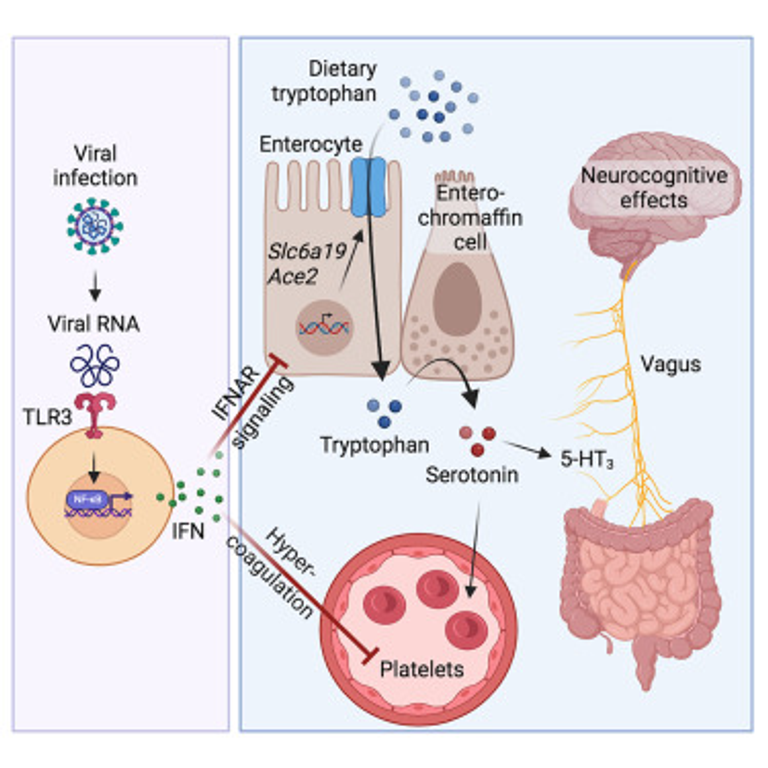Post-acute sequelae of COVID-19 (PASC, “Long COVID”) pose a significant global health challenge. The pathophysiology is unknown, and no effective treatments have been found to date. Several hypotheses have been formulated to explain the etiology of PASC, including viral persistence, chronic inflammation, hypercoagulability, and autonomic dysfunction. Here, we propose a mechanism that links all four hypotheses in a single pathway and provides actionable insights for therapeutic interventions. We find that PASC are associated with serotonin reduction. Viral infection and type I interferon-driven inflammation reduce serotonin through three mechanisms: diminished intestinal absorption of the serotonin precursor tryptophan; platelet hyperactivation and thrombocytopenia, which impacts serotonin storage; and enhanced MAO-mediated serotonin turnover. Peripheral serotonin reduction, in turn, impedes the activity of the vagus nerve and thereby impairs hippocampal responses and memory. These findings provide a possible explanation for neurocognitive symptoms associated with viral persistence in Long COVID, which may extend to other post-viral syndromes.
Serotonin reduction in post-acute sequelae of viral infection
16 oct. 2023|Cell

Contenu Associé

APCOVID-19 : étude nationale sur la prévalence et l’impact de l’affection post-COVID-19
A partir du 1er septembre 2022, Santé publique France lance une étude afin d’estimer la prévalenc...

COVID-19 et SYSTÈME NERVEUX : Formes aiguës et COVID long
RÉSUMÉ Les données disponibles montrent que le virus SARS-CoV-2 présente un potentiel neuro-inva...